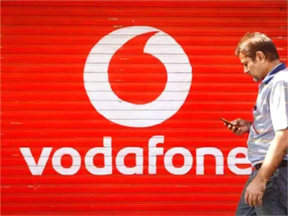London/Hong Kong (TIP)- Vodafone and CK Hutchison finally unveiled the 15 billion pound ($19 billion) merger of their British mobile operations on Wednesday, saying the creation of a new market leader would drive competition and investment in the country.
The long-awaited deal, after the two companies disclosed talks in October, will now trigger prolonged scrutiny by the anti-trust regulator into whether an operator with 27 million customers could lead to higher mobile prices.
Seeking to win over politicians, unions, and the competition authorities, the two groups said they would invest £11 billion to create what they described as “one of Europe’s most advanced standalone 5G networks”.
Vodafone’s new CEO, Margherita Della Valle, said the deal was a “game changer” in its home market. “The UK will benefit from the creation of a sustainable, strongly competitive third operator with a clear £11 billion network investment plan over 10 years driving growth, employment and innovation.” Under the terms, Vodafone will own 51 per cent and Hutchison 49 per cent of the combined group, which will be led by current Vodafone UK boss Ahmed Essam. The finance chief of Hutchison’s Three UK, Darren Purkis, will take the same role.
Vodafone, UK’s third-biggest operator, will have an option to buy-out the Hong Kong-based conglomerate three years after completion, if it agrees.
The deal will face intense scrutiny from regulators who have previously opposed deals that reduce the number of networks in major markets from four to three. Hutchison’s attempt to merge with Telefonica’s O2 in Britain seven years ago was blocked.
The companies will present the deal to Britain’s Competition and Markets Authority (CMA) in the coming weeks.
“We believe that this case stands on very strong grounds,” Vodafone’s Essam told reporters, adding that customers would be getting a much better network for the same price. “We’re very confident on our case.”
Hutchison’s Three UK boss Robert Finnegan pointed out that the planned investment was substantially higher than rivals, and while a rejection by the CMA would not lead to Hutchison exiting Britain, it would have to reduce investment.
Vodafone, Hutchison merge to create UK’s biggest operator
